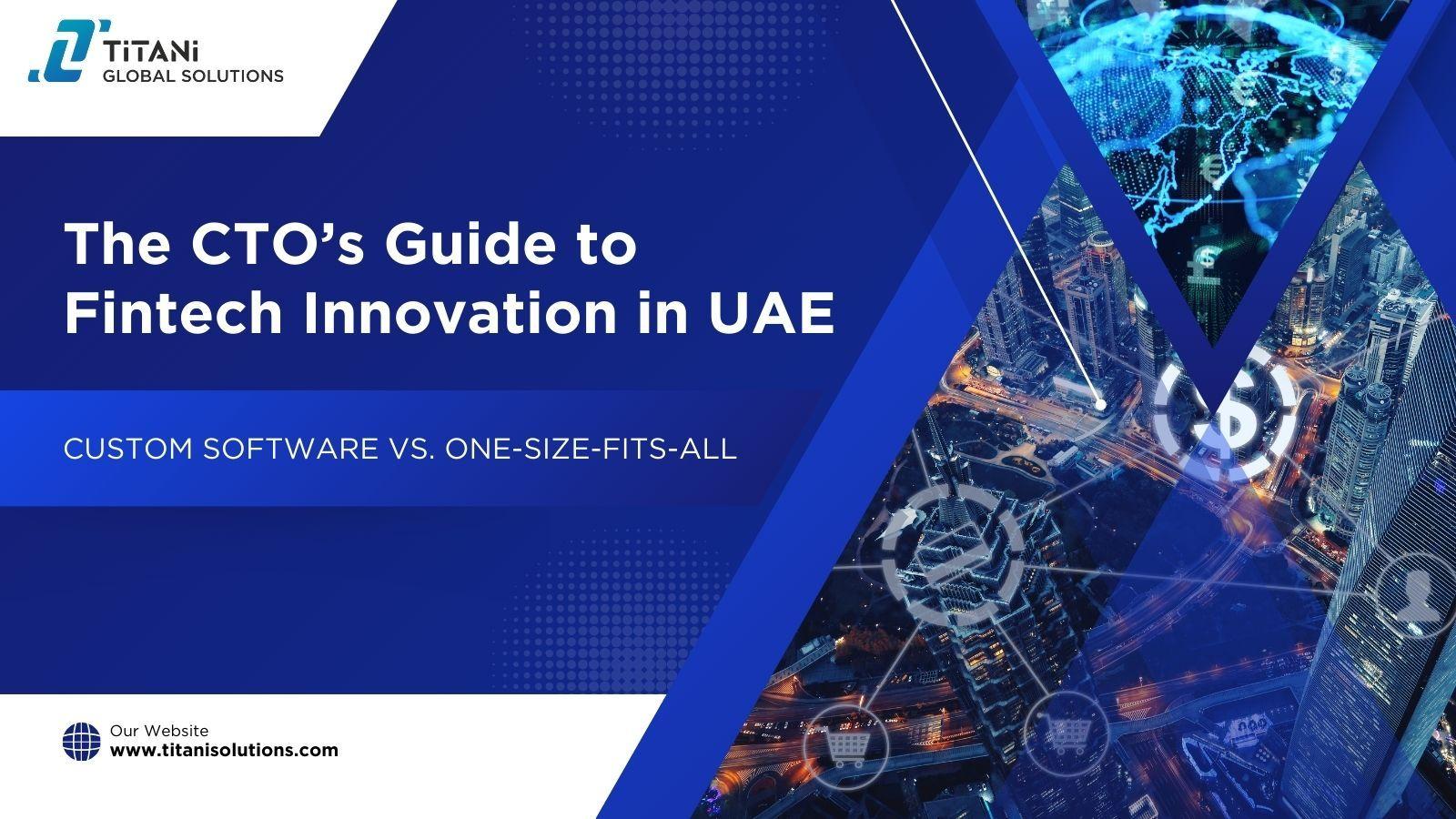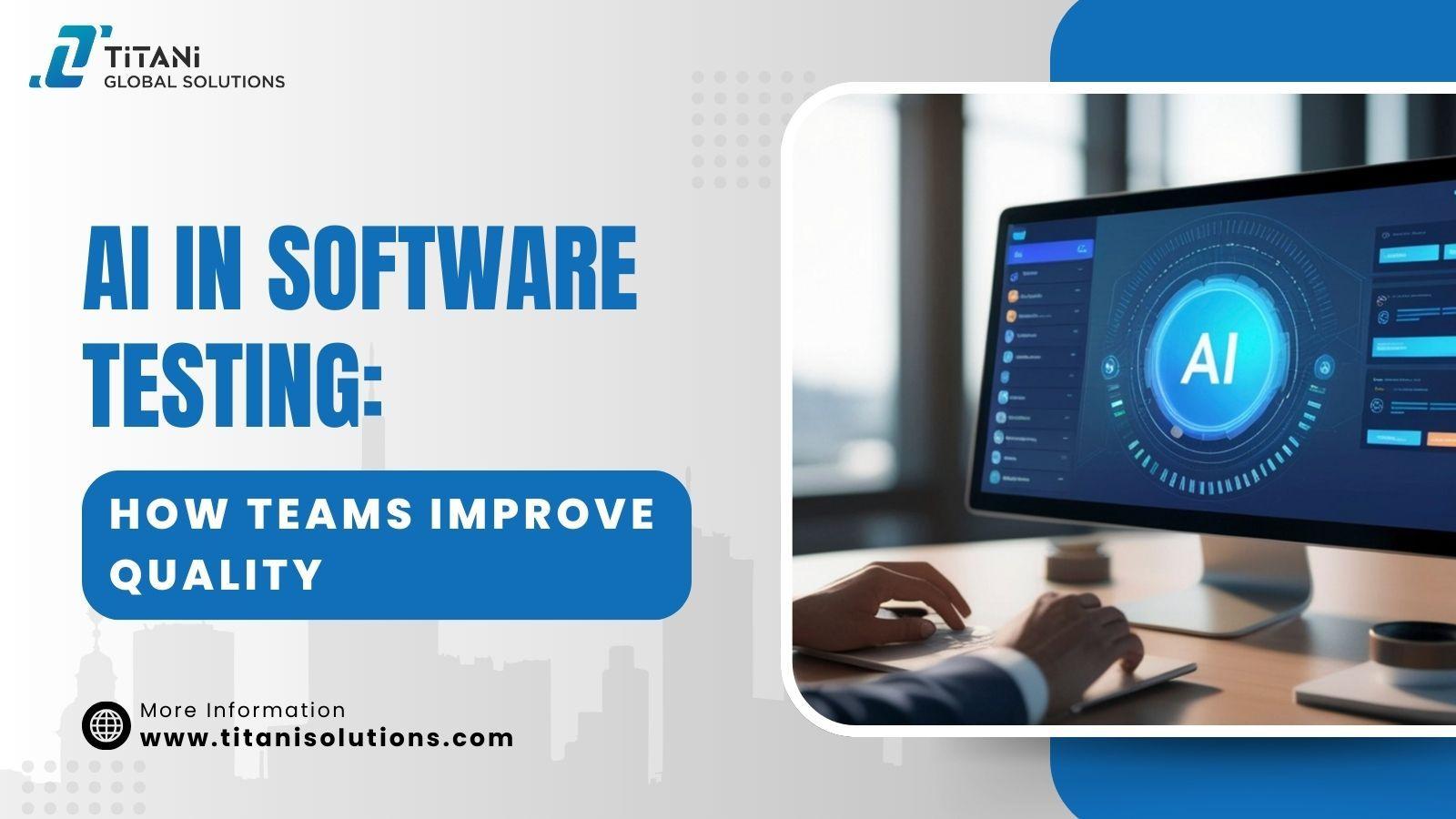Summary for Decision-Makers
Dubai’s fintech scene is moving rapidly—regulators (DIFC/ADGM/CBUAE), investors, and mobile-first users demand speed, compliance, and a seamless user experience. Off-the-shelf platforms help you launch quickly, but they create long-term drag: compliance gaps, integration friction (including open banking, risk engines, and payments), and feature mismatches that force workarounds and slow growth.
Custom software flips that script. You embed KYC/AML and data-residency from day one, design for scalability (cloud-native, microservices, API-first), and tailor UX flows to local behaviors—improving conversion and trust while avoiding vendor lock-in. Data unification enables real-time reporting for the CFO and board, as well as risk intelligence for fraud prevention.
CTO Takeaways
When to go custom: dynamic compliance, complex integrations, differentiated UX, scale beyond 6–12 months.
What to demand: modular architecture, automated KYC/AML, fraud/risk analytics, regulator-ready dashboards, investor-grade reporting.
How to choose a partner: fintech domain depth, UAE regulatory fluency, scalable architecture chops, regional presence, and ongoing roadmap support.
Bottom line: In the UAE, generic software gets you started; custom platforms win the long game—with faster iteration, stronger compliance, and a defensible competitive edge.

If you're leading technology at a fintech company in Dubai, chances are you're juggling a thousand things at once—regulatory updates, customer demands, integration headaches, and the constant pressure to innovate faster than your competitors. At Titani, we speak to CTOs and product leaders across the UAE every week, and one question keeps coming up:
“Should we keep using off-the-shelf software, or is it time to build something tailored to our fintech needs?”
It’s a fair question. Ready-made platforms can be quick to deploy and often come with pre-built modules, but they weren’t built with your business logic, your compliance reality, or your customers in mind. And in a place like Dubai, where the fintech sector is booming and regulatory landscapes are constantly evolving, that can become a serious bottleneck to growth.
According to Mordor Intelligence, the UAE’s fintech market is expected to generate over $2.5 billion annually by 2027, with Dubai at the center of this surge. That kind of momentum means more competition, more complexity, and higher expectations from users and regulators alike.
This guide was created for forward-thinking CTOs who are ready to build a fintech foundation that’s scalable, compliant, and future-proof. Whether you're launching a digital wallet, building a neobank, or modernizing a core lending system, custom software could be the difference between staying relevant and falling behind.
Fintech in Dubai: A Hotbed for Innovation
There’s a reason why global fintech leaders are setting up shop in Dubai—it’s not just the tax incentives or the glossy high-rises. It’s the pace. The opportunity. And the fact is that innovation here is being built into the system, not bolted on.
From our team’s experience at Titani, working with fintech firms across the UAE, we’ve seen firsthand how Dubai is evolving into the fintech capital of the Middle East. The Dubai International Financial Centre (DIFC) alone hosts over 700 fintechs, powered by initiatives like FinTech Hive and a regulatory sandbox that encourages innovation.
But it’s not just about volume. The UAE’s national fintech strategy is razor-focused on digital transformation, launching programs like the ADGM RegLab, streamlining licensing through the Instant License initiative, and supporting early-stage ideas through grants and venture funds.
If you’re a CTO here, you’re not just managing software—you’re orchestrating growth in one of the fastest-moving tech sectors on the planet. Fintech investment in the Middle East hit $2.5 billion in 2023, with the UAE leading the region MAGNiTT Report. That kind of funding fuels big expectations: rapid product launches, high compliance readiness, and seamless user experiences.
Add to that a mobile-first population (with smartphone penetration above 87%, DataReportal), and you’ve got customers who expect fintech to work as smoothly as their favorite e-commerce app.
At Titani, we believe this environment is both a gift and a challenge. It rewards those who can adapt fast, but only if your technology stack is built for it.
In Dubai’s fintech race, generic software might get you out of the gate. But custom solutions? That’s what wins in the long game.
The Pitfalls of Off-the-Shelf Software for Fintech
At first glance, off-the-shelf software feels like a smart move. It’s fast to deploy, relatively affordable, and comes with plenty of features. But for CTOs in Dubai’s fintech space, that surface-level convenience can quickly turn into a serious limitation.
We’ve worked with clients at Titani who came to us after outgrowing their third-party platforms, often just 6 to 12 months after go-live. What seemed like a shortcut ended up becoming a blocker for scaling, compliance, or even basic user experience improvements.
Here are the three most common pitfalls we see:
1. Compliance Gaps You Can’t Afford
UAE regulators move fast—and they expect you to keep up. Whether you’re under DIFC, ADGM, or Central Bank rules, chances are your compliance requirements aren’t static. Off-the-shelf systems typically aren’t flexible enough to adapt quickly to changing KYC/AML processes, data residency laws, or reporting formats.
A 2023 PwC UAE report found that 58% of fintechs in the region struggle with real-time compliance integration when using standard SaaS platforms.
2. Integration Friction That Slows You Down
Fintechs don’t operate in silos—you need your core system to play well with CRMs, payment gateways, ID verification tools, open banking APIs, and more. With packaged software, these integrations are often clunky, limited, or flat-out unavailable.
When one of our clients—a digital lending startup in Dubai—tried to integrate a new risk scoring API into their SaaS-based loan origination platform, they hit a wall. It took three months, three support tickets, and a very expensive “custom plan upgrade” to make it happen. A custom backend would’ve done it in days.
3. Features You Don’t Need, Missing the Ones You Do
Off-the-shelf solutions are built for the mass market, which means you get generic features that may not map to your workflows, and you pay for all of them. Meanwhile, essential tools like real-time underwriting logic or customized client onboarding may be nowhere to be found.
The result? Frankenstein fixes: spreadsheets, workarounds, manual steps—none of which scale, and all of which introduce risk.
At Titani, we believe your tech stack should grow with you, not against you. While plug-and-play tools have their place, they often sacrifice long-term flexibility for short-term comfort. And in fintech, short-term comfort can cost you millions.
You can’t innovate at fintech speed using software built for general business.
What Custom Software Brings to Fintech CTOs
If off-the-shelf software is the “one-size-fits-all” suit that never quite fits right, custom software is your tailored ensemble—built for your goals, your team, and your future roadmap.
At Titani, we’ve helped fintech companies across Dubai and the wider UAE design systems that don’t just solve a problem—they become a strategic asset. And here’s why CTOs love going custom:
1. You Build What Matters—Nothing More, Nothing Less
Custom software means you start with a clean slate. No excess features. No hidden modules. Just the tools your team and your users actually need. Whether it’s a modular architecture for a digital wallet, or a real-time credit scoring engine for your SME lending product, custom development lets you decide what gets built, when, and how.
It’s no surprise that 88% of fintech CTOs consider platform flexibility a top priority when scaling, according to Statista’s 2024 Global Fintech CTO Survey.
2. Compliance Becomes a Feature—Not a Fix
Imagine building your product with regulations in mind from day one, instead of retrofitting them after an audit scare. With custom solutions, you can embed compliance logic—like KYC/AML workflows, transaction monitoring rules, or regional data policies—right into your backend.
We recently worked with a DIFC-licensed client that needed multi-jurisdictional reporting logic. What took their previous vendor weeks to hack together, we built natively into their dashboard—automated, auditable, and scalable.
3. Your Stack Scales with You
Whether you’re planning to serve 500 users or 500,000, a well-designed custom system can scale with minimal rework. By leveraging cloud-native architectures, containerization, and event-driven APIs, we help clients launch with agility and scale without compromise.
You also own your codebase, which means no license lock-ins, no per-seat pricing traps, and total control over future upgrades.
4. Better UX, Better Conversion
In fintech, user trust and usability are non-negotiable. With custom software, your UX doesn’t need to conform to a rigid framework—you create flows that reflect how your customers behave.
One of our Dubai-based partners saw a 23% increase in onboarding conversion just by redesigning their sign-up process to reflect local language preferences and digital identity integrations.
5. Data That Works Harder for You
Off-the-shelf platforms often silo your data. Custom software allows you to unify and harness it, whether for real-time reporting, AI-powered risk analysis, or personalized user recommendations.
At Titani, we integrate dashboards and insights right into your admin tools—so your CTO, compliance officer, and investor all speak the same data language.
Off-the-shelf software gives you tools. Custom software gives you leverage.
Core Features CTOs Should Demand in a Custom Fintech Build
When you decide to go to customs, the possibilities are wide open—but that doesn’t mean you need everything. At Titani, we help CTOs zero in on what actually drives business value, reduces risk, and improves user engagement.
Below are the core features we believe every fintech platform in Dubai should consider, especially if you're building with scale, compliance, and competitive edge in mind.
1. Secure Payment Gateways & Digital Wallets
Your customers expect fast, frictionless payments—whether it’s P2P transfers, merchant transactions, or cross-border remittances. A custom-built wallet can offer multi-currency support, real-time settlement, and integration with UAE-based payment providers like Network International, Magnati, or PayTabs.
Plus, with the UAE Central Bank tightening scrutiny around payment security [source], built-in tokenization and PCI-DSS compliance aren’t optional—they’re essential.
2. Automated KYC & AML Engines
Customer onboarding is often where fintechs lose the most time and conversions. With automated KYC flows, you can verify identities in real time, link to national ID databases or biometric services, and dynamically adjust checks based on risk tier.
Add AML logic—like real-time transaction screening, blacklist monitoring, and suspicious pattern detection—and your compliance team gets back hours every week.
One Titani client reduced onboarding time from 72 hours to under 6, with a 3x improvement in compliance audit outcomes.
3. Fraud Detection & Risk Intelligence Modules
Fraud prevention in fintech is no longer just about thresholds and alerts. It's about prediction. With AI-powered anomaly detection, pattern recognition, and user behavior analytics, you can proactively block fraud before it happens.
A 2024 report by Juniper Research projects online payment fraud losses globally to hit $91 billion by 2028, making real-time detection not just a nice-to-have, but a bottom-line protector.
4. Customizable Compliance Dashboards
Forget static PDFs and export scripts. A well-designed dashboard should allow your risk and compliance teams to:
Track AML flags in real time,
Export regulatory reports in DIFC or ADGM formats.
Monitor licensing KPIs by jurisdiction.
We build dashboards at Titani that support custom permissions, dynamic filters, and regulator-ready exports, so CTOs can focus on systems, not spreadsheets.
5. Real-Time Reporting for Investor & CFO Visibility
Your board doesn’t want to wait 30 days for a monthly update. Custom fintech platforms should support:
Live user metrics,
Loan repayment or churn forecasting,
Automated investor update snapshots.
One of our clients now sends real-time investor dashboards via embedded analytics, cutting reporting time by 90% and improving stakeholder trust.
Building these features isn’t about bells and whistles—it’s about building trust, scalability, and a solid foundation for growth in one of the most demanding fintech markets in the world.
And when it’s your brand online, every detail matters.
Choosing the Right Software Partner in the UAE
Choosing the right software development partner is not just about technical delivery—it’s about long-term alignment with your business, your regulatory environment, and your pace of growth.
For fintech firms operating in Dubai and across the UAE, the complexity of local compliance, security expectations, and integration demands means your partner must offer more than just engineering resources.
Here are the five most critical factors CTOs should consider when selecting a custom software provider:
1. Deep Fintech Domain Expertise
Your partner must understand financial workflows, not just code. Look for firms that have built:
Lending engines,
Payment orchestration platforms,
KYC/AML modules,
Or RegTech tools tailored to regulated environments.
At Titani, over 60% of our project portfolio is in fintech, ranging from digital banking systems to blockchain-based compliance platforms.
2. Regulatory Readiness
Partners should be fluent in local compliance requirements (e.g., DIFC, ADGM, CBUAE) and capable of embedding those policies directly into product logic. This includes:
Data residency enforcement,
Real-time transaction monitoring,
Built-in audit logs and traceability.
Firms without this experience may deliver code, but at the cost of later legal or audit exposure.
3. Architecture That Scales
Your software partner must propose scalable, modular architectures:
Microservices over monoliths,
API-first design,
Secure DevOps pipelines,
And containerized deployment (e.g., Docker, Kubernetes).
Titani deploys solutions on AWS, Azure, or local UAE cloud infrastructure, depending on your residency or governance requirements.
4. Local Presence or Regional Familiarity
While many software vendors operate remotely, working with a UAE-savvy partner means:
Faster onboarding of legal and linguistic nuances,
Quicker turnarounds on Arabic/English UX decisions,
And hands-on support when working with local regulators or banks.
Titani’s team is active in the region and builds solutions tailored specifically for UAE fintech challenges, not just global templates.
5. Strategic Partnership, Not Just Project Delivery
You want a firm that:
Understands your business model, not just your tech stack,
Proactively suggests improvements as the market evolves,
And stays with you post-launch for monitoring, iterations, and scaling.
Titani provides long-term roadmap consulting, continuous improvement programs, and embedded DevOps support for growing fintech companies.
When you’re building core financial infrastructure, your development partner becomes an extension of your leadership team. Choosing a partner like Titani, who combines regional insight, fintech specialization, and agile execution, can significantly reduce time-to-market while increasing regulatory confidence.
Final Thoughts: Why Custom Software Is the Smarter Choice for Fintech CTOs in Dubai
In Dubai’s fast-evolving fintech sector, off-the-shelf software is no longer enough. CTOs are expected to deliver secure, scalable, and compliance-ready platforms that move at the pace of innovation, and that’s where custom software comes in. With a tailored solution, fintech companies can eliminate integration bottlenecks, meet DIFC and ADGM regulatory standards, improve user onboarding, and future-proof their core architecture. At Titani, we help fintech leaders across the UAE build custom platforms that align with their business model, regulatory environment, and growth strategy. If you’re planning to scale your fintech operations in Dubai or simply want a second opinion on your current stack, schedule a free consultation with our team. Let’s explore how a custom-built platform can give your business a sharper competitive edge and long-term technical control by talking to us.




